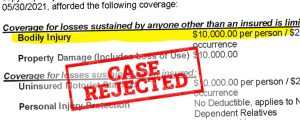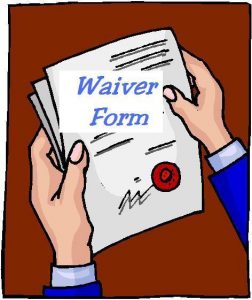A driver taking 36 people, including high schoolers and their parents, on a road trip Saturday has been accused of being impaired while operating the vehicle, according to reporting from the Miami Herald.
The driver, who was identified Tuesday evening as Keith Edward Shifflett, 55, was taking the passengers from Bradenton to Daytona Beach as part of Project Graduation, an alcohol-and-drug-free event organized for students who are graduating. The students, some of whom were still under 18 years old at the time of the incident, came from Sebring High School in Highland County, Florida.
According to local reporting, the driver is accused of driving “recklessly” while running three red lights and ignoring pleas from passengers begging him to stop. Shifflett only stopped when a parent on the trip driving in a separate car got in front of the bus to block it. Shifflett was charged with 30 counts of culpable negligence and four counts of child abuse without great bodily harm.
 Florida Injury Lawyer Blawg
Florida Injury Lawyer Blawg



 Generally, Continuances favor the Defendant—Not You. As a plaintiff, you are not compensated until settlement or trial. Meanwhile, your bills are adding up, your future remains uncertain, and the phrase “the wheels of justice turn slowly…” is not exactly soothing.
Generally, Continuances favor the Defendant—Not You. As a plaintiff, you are not compensated until settlement or trial. Meanwhile, your bills are adding up, your future remains uncertain, and the phrase “the wheels of justice turn slowly…” is not exactly soothing. In recent years, liability waivers have become standard procedure in virtually every association between corporations and individuals. Whether a jet ski tour, your typical gym membership, or even placing your child in summer camp, corporations of all sizes are aggressively protecting themselves with liability waivers. In many cases, corporations are required to obtain liability waivers as a condition of their insurance policy. These waivers contractually preclude individuals from pursuing any kind of claim in the event of injury, even those caused by the negligence of the corporation’s employees. The waivers are typically buried within other tedious paperwork and executed by individuals without much thought. After all, no one expects to become injured. These waivers then become potentially devastating in the event of a serious or even fatal injury. Because liability waivers are presumptively valid under Florida law, they deprive injury victims of their day in court on a daily basis.
In recent years, liability waivers have become standard procedure in virtually every association between corporations and individuals. Whether a jet ski tour, your typical gym membership, or even placing your child in summer camp, corporations of all sizes are aggressively protecting themselves with liability waivers. In many cases, corporations are required to obtain liability waivers as a condition of their insurance policy. These waivers contractually preclude individuals from pursuing any kind of claim in the event of injury, even those caused by the negligence of the corporation’s employees. The waivers are typically buried within other tedious paperwork and executed by individuals without much thought. After all, no one expects to become injured. These waivers then become potentially devastating in the event of a serious or even fatal injury. Because liability waivers are presumptively valid under Florida law, they deprive injury victims of their day in court on a daily basis.